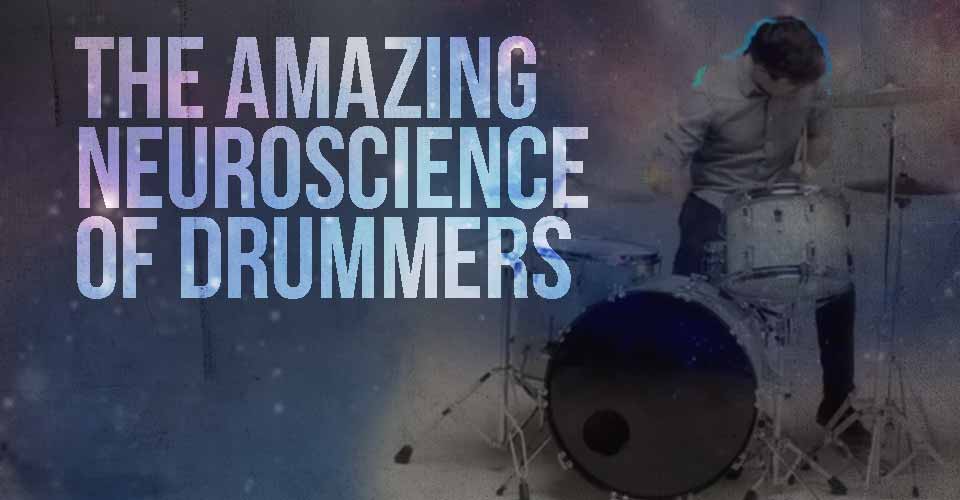
“There are three kinds of drummers in the world—those who can count and those who can’t.”
If you're a drummer, you've probably heard of this old joke. But maybe there's an even more global divide. Maybe we should divide people into those who can drum and those who can’t. Maybe, as the promotional video below from GE suggests, a drummer's brain is fundamentally different from other people's brains.
Read below to learn more about scientific research into drummers’ brains, which is an expanding area of neuroscience and psychology.
“Drummers,” as writes Jordan Taylor Sloan at Mic, “can actually be smarter than their less rhythmically-focused bandmates.” That's what a Swedish study by Karolinska Institutet in Stockholm found, proving there is “a link between intelligence, good timing and the part of the brain used for problem-solving.” As Gary Cleland told The Telegraph, drummers “might be natural intellectuals.”
Neuroscientist David Eagleman, a renaissance researcher, also known as the “man obsessed with time,” figured that out in an experiment he conducted with several professional drummers at Brian Eno’s studio. Eno theorized that drummers have a special mental makeup, and he was proven right: drummers do have different brains from the rest of us. Eagleman’s test indicated “a huge statistical difference between the drummers’ timing and that of test subjects.” As Eagleman said: “Now we know that there is something anatomically different about them.” Drummers' ability to keep time offers them an intuitive understanding of all the rhythmic patterns they perceive.
That difference can also be annoying; imagine the pain of having perfect pitch in an off-key world. However, drumming has ultimately therapeutic value, providing emotional and physical benefits. These are collectively known as “drummer’s high,” which is an endorphin rush only stimulated by playing music (listening to it is not enough. In addition to boosting people’s pain thresholds, Oxford psychologists discovered, the endorphin-filled act of drumming raises positive emotions and encourages people to work together more cooperatively.
Clash drummer Topper Headon talks of the therapeutic aspect of drumming in the short BBC interview above. He also names drumming a “primeval” and a universally human activity. Former Grateful Dead drummer Mickey Hart and the neuroscientist Adam Gazzaley are really hopeful for the science of rhythm. Hart discusses how rhythm can powerfully move crowds and even bring Alzheimer’s patients back into the present.
It's debatable whether we can train ourselves to think and feel like drummers do. But as for whether drummers do think in ways, non-drummers cannot consider the neuroscience of Stewart Copeland’s polyrhythmic beats, as well as the work of Terry Bozzio (below) who is playing the largest drumkit you’ve ever seen.
References: I Heart Intelligence & Open Culture












COMMENTS